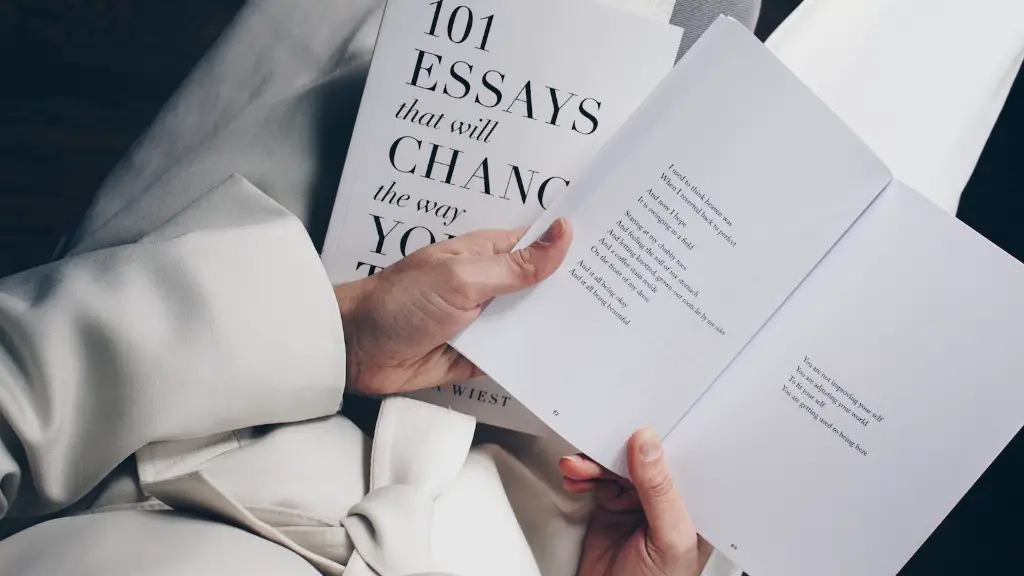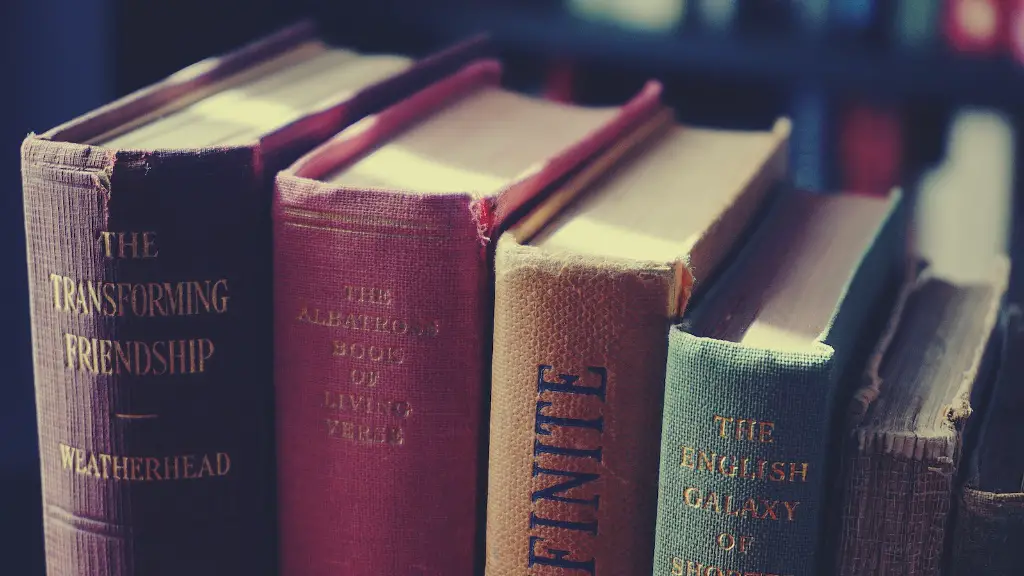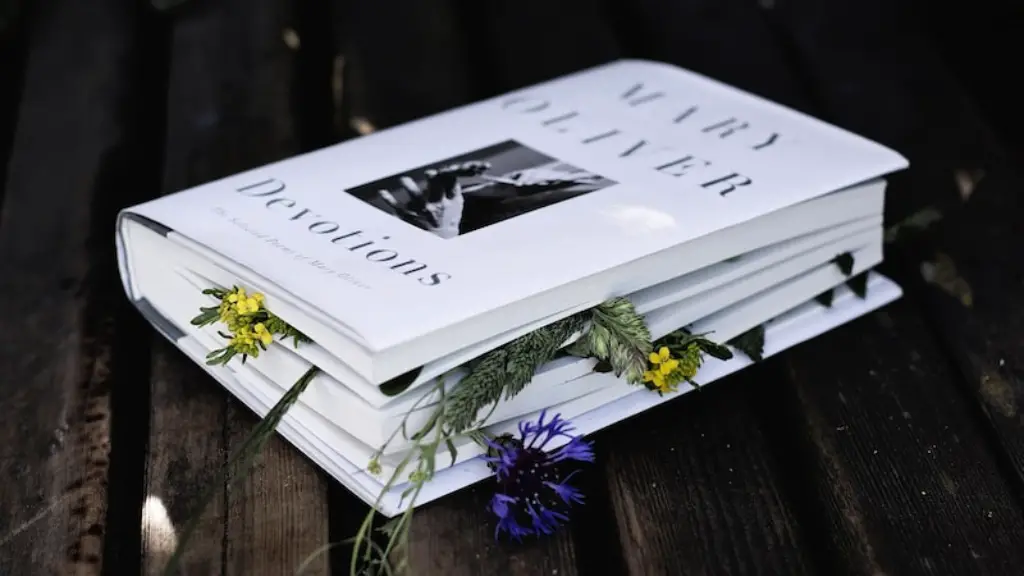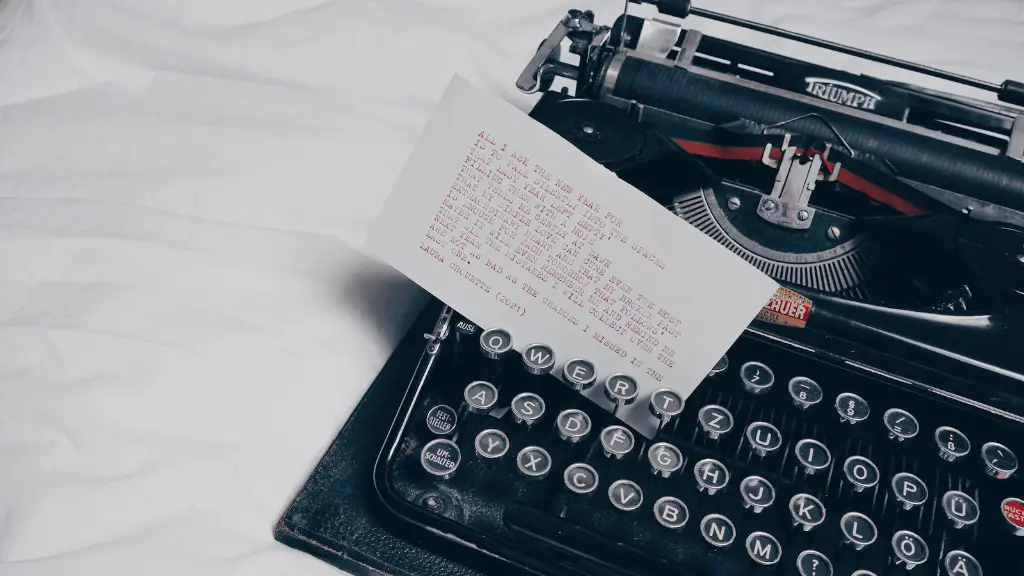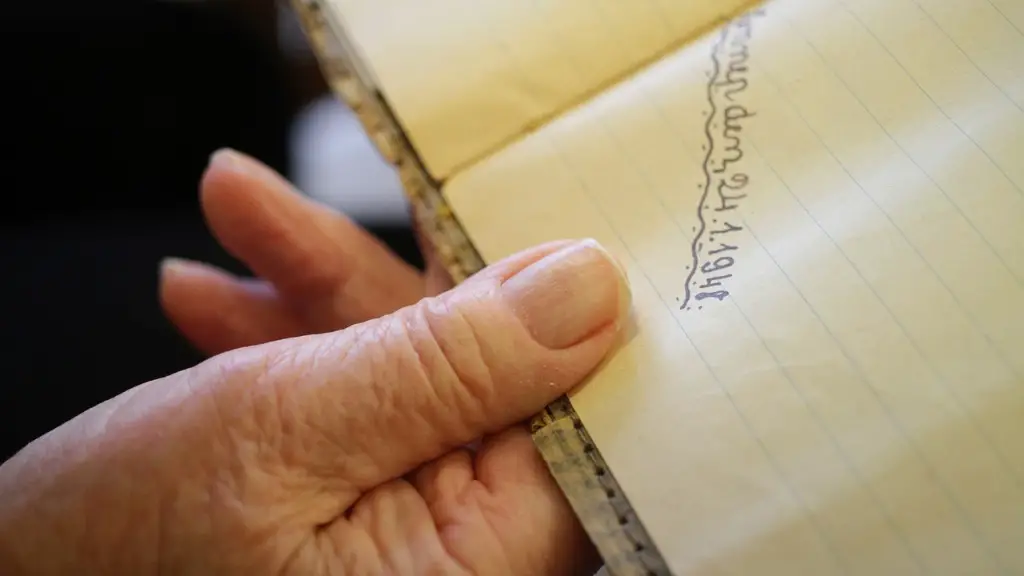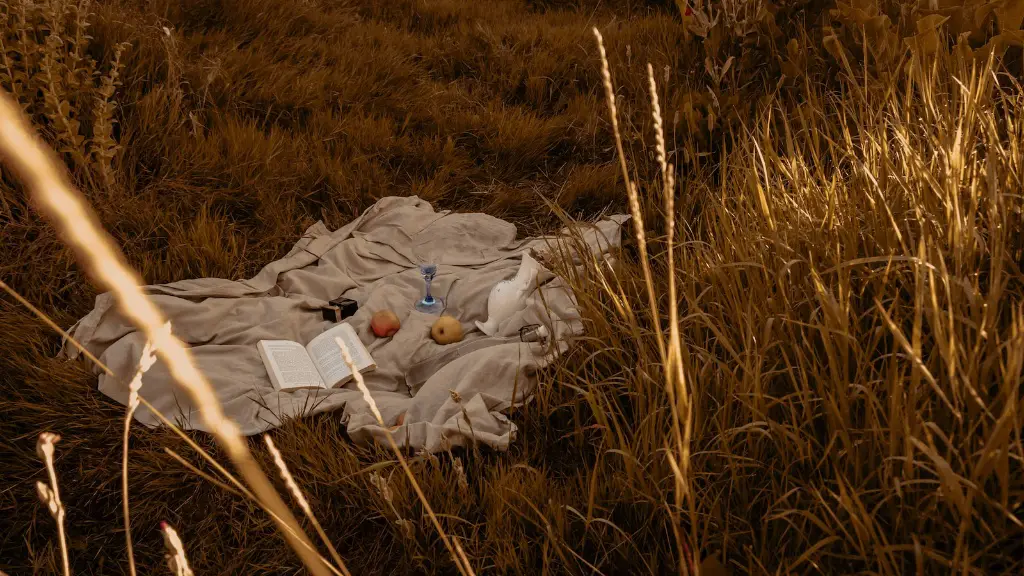Form in poetry is the combination of strategies a poet uses to create meaning and structure within a poem. It affects how readers read and how they understand the poem. The form of a poem is made up of two basic elements: structure and style. Structure refers to the way a verse is broken down, consisting of the lines, stanzas, and rhyme scheme. Style refers to the rhythm, alliteration, repetitions, and other language devices used by the poet.
In the most basic sense, poetry can be broken down into three classic forms: free verse, blank verse, and lyric. Each of these three forms has a specific set of conventions or rules about the way the poet expresses their ideas. Free verse is poetry that does not follow any particular set of rules or conventions, so the poet is free to express their feelings in their own unique way. Blank verse uses regular meter, but no particular rhyme scheme, allowing the poet more freedom to explore the many different ways of expressing themselves. Lyric poetry is a kind of song-like verse that is used to express a single emotion or idea in a sustained way.
In addition to the three main forms of poetry, there are a number of other forms that poets can use to express their ideas. These forms can include sonnets, ballads, haiku, odes, epigrams, elegy, and others. Each of these forms has its own set of guidelines for structure and style that the poet needs to follow. Some forms are very strictly regulated with little room for variation, while others are much more flexible.
Using form in poetry is an important part of the craft of writing. It allows the poet to organize their thoughts and feelings in a meaningful way. It also helps to draw the reader in, as they often find themselves trying to decipher the meaning and structure of the poem. Lastly, form gives the poem the human touch, making it more than just words on a page. It is a way of speaking directly to the reader’s heart and soul.
The Power of Word Choice
While the form of a poem is important in conveying the poet’s meaning, it is equally important to choose words that sing with meaning. Many poets believe that such word choice can take a poem from the mundane to the sublime. A poem’s language should be fresh and vivid, employing imagery, metaphor, and other rhetorical devices to bring the words to life.
Word choice plays a vital role in the success of a poem, since the wrong choice can rob it of its meaning and power. Choosing words that evoke strong emotions and imagery in the reader is one of the most important tools a poet has. Careful word choice is even more important in a poem in which the form is not traditionally structured, as the poet must rely on their choice of words to convey the desired meaning.
A good understanding of language is essential to becoming a successful poet. Knowing the nuances and meanings of different words can help poets create more powerful poems. Being aware of the power of language is also important in understanding how different forms of poetry communicate different messages.
The Role of Rhyme
Rhyme has long been an essential tool in poetry. It can serve to add emphasis to certain lines or words, or to create a sense of unity in a poem. It can also provide structure and flow, helping a poem to move along in a more pleasing way.
Different types of rhyme schemes have been created and used in poetry to create different effects. Some of the most common rhymes are end rhymes, internal rhymes, slant rhymes, and half rhymes. Rhyme can also be used to create intricate patterns throughout a poem.
While rhyme can be an effective tool in creating a pleasing poem, some poets reject the idea of rhyme altogether. They argue that rhyme often comes at the expense of substance, and detracts from the meaning of the poem. Rhyme can also be used to create structure, which can lead to the poem becoming too formulaic and predictable.
Whether or not a poet chooses to use rhyme in their poem is up to them, as they must decide what effect they wish to have on their reader. For some, rhyme adds an element of beauty and pleasure to the poem, while for others it can be a hindrance.
The Influence of Music on Poetry
The influence of music on poetry has been around for centuries. Music has the power to evoke emotions and therefore, can be effectively used in poetry to add depth and meaning. Poets often use musical techniques, such as rhythm and meter, to create a sense of unity and flow in their poems. Music also has the power to evoke a certain atmosphere or mood, which can also be used by poets in their work.
The influence of music on poetry is related to form, as certain forms can lend themselves to certain kinds of music. Lyric poetry, for example, is often composed in the form of a song and set to music. Other forms, such as sonnets, can also be set to music, though they do not necessarily have to be.
The musicality of a poem can enhance the reading experience, immersing the reader in the poem’s atmosphere and helping them to get lost in the words. A poet should be aware of this power and use it to their advantage when writing a poem.
Creativity and Innovation
When writing poetry, it is important for a poet to be open to experimentation and creativity. Poetry can take on many different forms, from traditional to avant-garde. Many poets have created their own distinct style, or have used existing forms in new and inventive ways.
Innovative use of form can help a poet express the complexities of their emotions and ideas. It can also help to challenge the reader and encourage them to think differently. The use of form can also be used to experiment with a theme or idea, allowing a poet to explore different angles and perspectives.
At its core, poetry is a creative art form and should be treated as such. Allowing for creativity and experimentation is essential to creating something truly unique. Whether a poet chooses to explore traditional forms or to create something entirely new, their work should always reflect their own creativity and originality.
The Challenges of Poetry Writing
Writing poetry can be a rewarding and fulfilling experience, but it can also be a challenging one. Writing in poetic form requires a great deal of discipline and skill. It can take time to get the hang of the various elements of the craft, such as meter, rhyme, structure, and word choice.
In addition, it is easy to become overwhelmed when writing a poem. It can be difficult to find the right words to express complex feelings and ideas. Furthermore, the seemingly infinite array of poetic forms and conventions can be daunting for a beginning poet.
The best way for a poet to overcome these challenges is to practice and study the craft. Reading and studying the works of great poets can help to increase the poet’s knowledge and understanding of poetic techniques. Writing regularly is also essential, as it provides the poet with an opportunity to practice and refine their skills.
The Power of Poetry
Poetry has the power to move and inspire us in powerful and unexplainable ways. It can take us to places both dark and light, sad and joyful. It can evoke a range of emotions and ideas, allowing us to explore the depths of our experience.
At its core, poetry is a form of communication, and can be a powerful tool for exploring and understanding the human condition. Poetry should be approached with humility and respect, as the poet is entrusted with the task of conveying something meaningful and profound.
Creating a good poem is a difficult, yet rewarding process. It requires discipline, skill, and dedication. However, the reward of creating something that is meaningful and beautiful is worth the effort.
